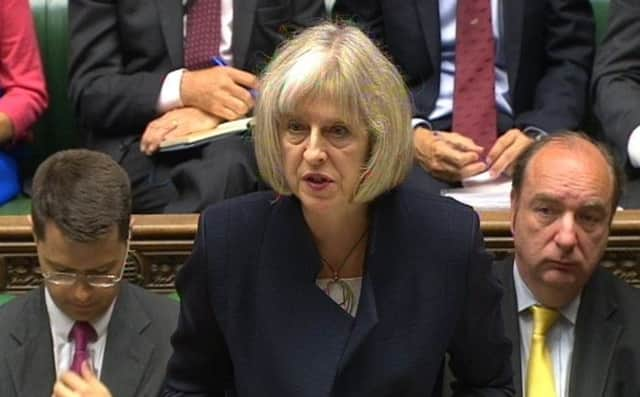Leaders: Child abuse inquiry | Israel violence


But there are still risks that well-meaning intent could be dissipated and no better safeguards emerge from these processes.
There is less risk of that happening with the short review that Mrs May announced would be conducted by Peter Wanless, chief executive of the National Society for the Prevention of Cruelty to Children. He is to examine the internal investigations by Home Office officials into how the department handled allegations of child abuse by powerful people that had been passed to it in the 1980s.
Advertisement
Hide AdAdvertisement
Hide AdMrs May told MPs she was confident that the internal investigations had shown there had been no discreet dropping of any allegations. Nonetheless, in the interests of utmost transparency, Mr Wanless will trawl through everything again, and delve even more deeply if he thinks it necessary. That is the right thing to do, particularly as she reported that some 114 files relating to allegations had not been found.
Claims that politicians have been involved in child-sex-abuse rings have circulated for years, and it is not unreasonable for the public, highly cynical about political behaviour after the MPs’ expense-fiddling scandal, to suspect that officials have been complicit with politicians in finding ways to make allegations disappear.
There is an obvious interest in uncovering any such malpractice, and in finding any institutional failings. The Jimmy Savile case says nothing can be taken for granted.
The broader, overarching inquiry that she also announced, into how institutions in general should deal with allegations of child abuse, is potentially more problematic. It is focused on how public bodies, such as the NHS, local councils, schools and the police, and non-state institutions, which includes the BBC, have handled claims of abuse made to them. Clearly, as Mrs May indicated, this will take some time. This indicates a problem – the allegations that have surfaced in recent years cover so many bodies that reviewing all the paperwork and questioning witnesses may become prolonged. The recommendations it produces may have to be so broadly drawn as to make little impact.
The inquiry, therefore, must concentrate on producing precise and practical proposals. Apart from these being helpful guidance to institutions, which, for whatever reason, have struggled to deal with allegations, they should also be difficult for them to evade implementing. The acid test at the end of this process should be that anybody should be able to detail procedures to be followed when an allegation is made. And the public should be confident that any such claim will be pursued fearlessly, with the single clear aim of getting at the truth and nothing else.
US has to use its influence in Israel
Violence begets violence. A dismal and distressingly familiar cycle is once again accelerating in Israel. After the murder of three Israeli teenagers, which appears to be nothing other than a terrorist killing, there followed an apparently similarly motivated killing of a Palestinian youth.
Meanwhile, amid these murders, the state of Israel launched at least three strikes by missiles and aerial drones, causing the deaths of eight people said to be militants from the military wing of Hamas, the elected authority in the Palestinian Gaza Strip. Those attacks were in response to multiple rocket attacks on Israel recently. Hamas, in turn, last night launched 80 rockets into southern Israel. Seldom can an escalation of violence have happened so quickly.
Is this destined to go on and on? Does any observer think this is a path to peace? And does history provide any example where continual scaling up of tit-for-tat terror and death has resulted in a peaceful outcome?
Advertisement
Hide AdAdvertisement
Hide AdThe more likely route is that these initial attacks satisfy inflamed public opinion on both sides. Then the cycle ends in an exhausted stalemate, with nothing achieved except fuller cemeteries and many grieving families.
Israel, because of its prosperity, military power and international status, has more to lose than may be immediately obvious to its citizens. The powerful using brute force on the weak is never an attractive sight, whatever the provocation.
The United States must use its influence to point this out. An abiding peace in the region is now as far away as it has ever been, but surely no Israeli wishes to live in a state in continual conflict.